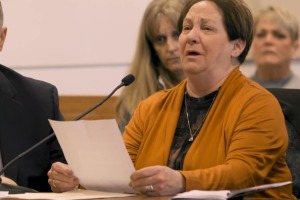Massachusetts city bans pro-life crisis pregnancy centers

A Massachusetts city passed an ordinance banning pro-life pregnancy centers because they allegedly deceive clients about abortion, a claim challenged by advocates who support the free resources pregnancy centers offer women seeking support raising their child.
Tufts Daily reports that the Somerville City Council passed the ordinance on March 24 banning limited services pregnancy centers that don't provide or refer clients for abortions or emergency contraception.
Somerville City Councilor-at-Large Kristen Strezo championed the measure, and it was sponsored by the entire city council.
The ban is reportedly the first of its kind in Massachusetts, but it is also proactive, as Somerville does not have any practices resembling a pregnancy center. Still, a failure to comply with the ordinance may result in a fine of $300.
Describing the reason for the ordinance, Strezo claimed pregnancy centers are "disingenuous" and accused them of withholding information about pregnancy and abortion from clients.
She also expressed relief that the measure will prevent Somerville residents from having to "deal with deceptive or misleading and manipulative language" that these pro-life centers supposedly share in their materials.
Laura Echevarria, director of communications and press secretary at National Right to Life, who previously worked at a pregnancy center in Virginia, disagrees with Strezo's assessment. She told The Christian Post that pro-life pregnancy centers offer a wide range of supportive services.
"The majority of pregnancy centers are known in the community. The one where I worked was supported by area churches and businesses, and so, people knew about the pregnancy center," Echevarria said. "The businesses knew about the pregnancy center. Everyone knew that it was, you know, a pro-life center. But everything was done for free."
Echevarria said these organizations are upfront "about what they do and what they don't do." She said the center she worked at never advertised itself as an abortion facility. However, the center offered ultrasounds and free resources for clients, something Echevarria said is how "the vast majority of pregnancy centers are set up."
The pro-life advocate contends that it's "disingenuous" to claim pregnancy centers mislead clients and criticized Somerville's ordinance for promoting inaccurate information.
"What is deceptive is the fact that the real intent behind this is to prevent women from having real choices and to prevent them from having the opportunity to see their baby, to have the opportunity to talk to someone about resources in the area that can help them," she said.
Echevarria asserted that it's "rare" for a woman to be "excited" about having an abortion and that most women who visit pregnancy centers do not want to have abortions.
"The average woman that goes to a pregnancy center, she wants help," the advocate said. "She wants someone to say, 'You know what? You can do this, and we can put you in contact with a place that can help you with housing. We can put you in contact with someone who can help you with transportation.'"
A 2020 report released by the national pro-life group Susan B. Anthony List and its research arm, the Charlotte Lozier Institute, found that 2,700 pregnancy centers nationwide provided almost 2 million people with free resources at an estimated value of nearly $270 million in 2019.
A 2017 CLI report estimates that the free resources pregnancy centers offered to clients saved communities nearly $161 million annually. A 2019 report found that Heartbeat International, which runs one of the largest networks of pregnancy centers worldwide, reported that "90% of their affiliates' funding comes from [non-governmental] donations from local communities."
In contrast, Planned Parenthood's 2018-2019 annual report suggests that the nation's largest abortion provider collected over $600 million in taxpayer dollars.
While the abortion provider and abortion advocacy groups have accused pregnancy centers of operating unlicensed medical facilities, Heartbeat International's "Pregnancy Center Truth" report highlights a distinction between medical and non-medical pregnancy centers.
The former adheres to all medical board requirements and state laws to administer medical care by a licensed professional at no cost to the client. A non-medical pregnancy center typically offers material resources, such as diapers and clothes, and parenting education classes during their clients' time of need.




























